Related Research Articles
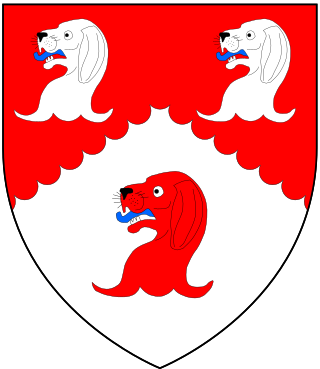
Baron Feversham is a title that has been created twice, once in the Peerage of Great Britain and once in the Peerage of the United Kingdom. The first creation, in the Peerage of Great Britain, came in 1747 when Anthony Duncombe, who had earlier represented Salisbury and Downton in the House of Commons, was made Lord Feversham, Baron of Downton, in the County of Wilts. He had previously inherited half of the enormous fortune of his uncle Sir Charles Duncombe. However, Lord Feversham had no sons and the barony became extinct on his death in 1763. The peerage was revived in the Peerage of the United Kingdom in 1826 in favour of his kinsman Charles Duncombe, who was created Baron Feversham, of Duncombe Park in the County of York. He was a former Member of Parliament for Shaftesbury, Aldborough, Heytesbury and Newport. Duncombe was the grandson of Thomas Duncombe, son of John Brown by his wife Ursula Duncombe, aunt of the first Baron of the 1747 creation. Ursula had inherited the other half of her brother Sir Charles Duncombe's fortune. Lord Feversham son, the second Baron, sat as a Conservative Member of Parliament for Yorkshire and the North Riding of Yorkshire.
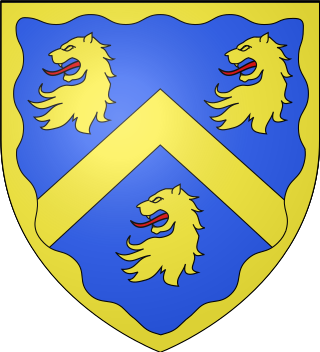
Baron Leconfield, of Leconfield, in the East Riding of the County of York, is a title in the Peerage of the United Kingdom. It was created in 1859 for Col. George Wyndham (1787–1869). He was the eldest illegitimate son and adopted heir of George Wyndham, 3rd Earl of Egremont (1751–1837), by Elizabeth Ilive, his future wife, from whom he inherited Petworth House in Sussex, Egremont Castle and Cockermouth Castle in Cumbria and Leconfield Castle in Yorkshire, all formerly lands of Josceline Percy, 11th Earl of Northumberland (1644–1670), inherited by Charles Seymour, 6th Duke of Somerset (1662–1748), on his marriage to the Percy heiress Elizabeth Percy (1667–1722) and inherited as one of the co-heirs of his son Algernon Seymour, 7th Duke of Somerset, 1st Earl of Egremont (1684–1750), by the latter's nephew Sir Charles Wyndham, 4th Baronet (1710–1763), of Orchard Wyndham in Somerset, who inherited by special remainder the earldom of Egremont. The 1st Baron's eldest son, the second Baron, represented West Sussex in the House of Commons as a Conservative. He was succeeded by his eldest son, the third Baron, who served as Lord Lieutenant of Sussex from 1917 to 1949. The latter's nephew, the sixth Baron, served as Private Secretary to Prime Minister Harold Macmillan from 1957 to 1963. In 1963, four years before he succeeded his father in the barony of Leconfield, the Egremont title held by his ancestors was revived when he was raised to the peerage as Baron Egremont, of Petworth in the County of Sussex. As of 2017 the titles are held by his son, the seventh Baron. Known as Max Egremont, he is a biographer and novelist.

Ernest William Beckett, 2nd Baron Grimthorpe, was a British banker and Conservative politician who sat in the House of Commons from 1885 until 1905 when he inherited the Grimthorpe peerage.
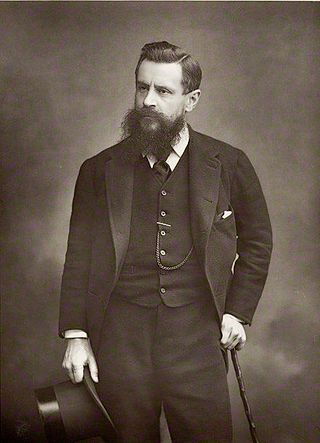
Henry Fitzalan-Howard, 15th Duke of Norfolk,, styled Lord Maltravers until 1856 and Earl of Arundel and Surrey between 1856 and 1860, was a British Unionist politician and philanthropist. He served as Postmaster General between 1895 and 1900, but is best remembered for his philanthropic work, which concentrated on Roman Catholic causes and the city of Sheffield.
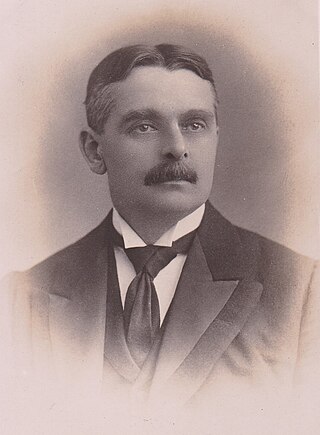
Colonel Ernest George Pretyman,, known as E. G. Pretyman, was a British Conservative politician and soldier.

Sir Cuthbert Morley Headlam, 1st Baronet, was a British Conservative politician.

Colonel Windham Henry Wyndham-Quin, 5th Earl of Dunraven and Mount-Earl was an Irish peer, British Army officer and a Conservative Member of Parliament for South Glamorganshire (1895–1906).
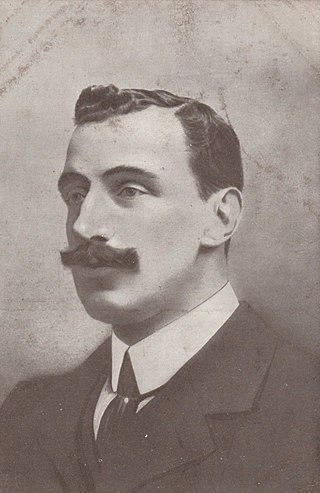
Sir William Gervase Beckett, 1st Baronet was a British banker and Conservative politician.
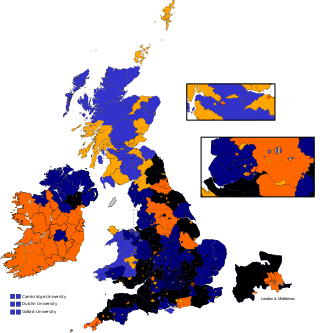
East Cumberland is a former county constituency in the House of Commons of the Parliament of the United Kingdom. It elected two Members of Parliament (MPs) by the bloc vote system of election.

William Ernest Duncombe, 1st Earl of Feversham, known as The Lord Feversham between 1867 and 1868, was a British Conservative politician.

Colonel Hon. Frederic Courtenay Morgan was a Welsh Army officer and Conservative politician.
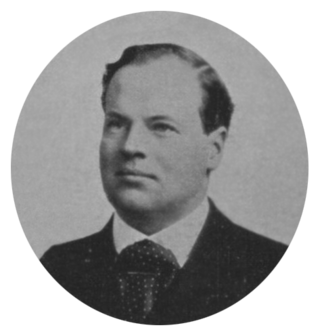
Lieutenant-Colonel Charles William Reginald Duncombe, 2nd Earl of Feversham, known as Viscount Helmsley from 1881 to 1915, was a British Conservative Party politician and soldier.

William Duncombe, 2nd Baron Feversham, was a British peer with a large estate in the North Riding of Yorkshire. He was prominent in the affairs of the Royal Agricultural Society and owner of a prize-winning herd of short-horn cattle. He served as a Tory Member of Parliament (MP) for the Riding from 1832 to 1841, after which he sat in the House of Lords, having succeeded to the title on the death of his father. From 1826 to 1831 he had sat as an Ultra-Tory MP. He was the first MP to support Richard Oastler's campaign for Factory Reform, and gave it unwavering support for the rest of his life; in 1847 he seconded the Second Reading in the Lords of the Factory Act of that year.
The 1903 Barnard Castle by-election was a parliamentary by-election held for the British House of Commons constituency of Barnard Castle, in County Durham, on 24 July 1903.

Hon. Ronald Henry Fulke Greville MVO was an English Conservative Party politician. He was Member of Parliament (MP) for Bradford East from 1896 to 1906.
William Beckett-Denison was an English banker and Conservative Party politician who sat in the House of Commons in two periods between 1876 and 1890. He died when he fell under a train.

Brigadier-General Sir George Kynaston Cockerill, was a British Army officer and a Conservative Party politician.
The Whitby by-election was a Parliamentary by-election held on 1 June 1905. The constituency returned one Member of Parliament (MP) to the House of Commons of the United Kingdom, elected by the first past the post voting system.
Lieutenant-Colonel Geoffrey Reginald Devereux Shaw was a British barrister, and the Conservative MP for Sowerby.
Major George Pitt Rose was a British politician and soldier who served as MP for Christchurch. From a Tory background, he was well-connected in the political world.
References
- ↑ "Duncombe, Hon. Hubert Ernest Valentine" . Who's Who & Who Was Who . Vol. 1920–2016. A & C Black.(Subscription or UK public library membership required.)
- 1 2 "Duncombe, the Hon. Hubert [Ernest] Valentine (DNCM881HV)". A Cambridge Alumni Database. University of Cambridge.
- ↑ "The Bulletin, Vol. 3 No. 115". Trove. 25 July 1885. Retrieved 13 January 2024.
- ↑ Munday, Luther (1907). A chronicle of friendships. Cornell University Library. New York : F. A. Stokes. p. 186.
- ↑ "Representation of West Cumberland". Yorkshire Gazette. 17 June 1893.(subscription required)
- ↑ "Election Movements". Newcastle Courant. 9 March 1888.(subscription required)
- ↑ "Declaration of the Poll". Cumberland Pacquet, and Ware's Whitehaven Advertiser. 25 July 1895.(subscription required)
- ↑ "Election intelligence". The Times. No. 36105. London. 2 April 1900. p. 7.
- ↑ "The Election Campaign". Leeds Mercury. 20 September 1900.(subscription required)
- ↑ "The Hon HV Duncombe MP". Maryport Advertiser. 27 July 1895.(subscription required)
- ↑ "War Notes and News". Lakes Herald. 9 February 1900.(subscription required)
- ↑ "The War - Embarcation of Troops". The Times. No. 36105. London. 2 April 1900. p. 7.
- ↑ "Affairs of the Hon H. Duncombe". Sheffield Daily Telegraph. 2 November 1904.(subscription required)
- ↑ "The Case of Edmund Eaton". Truth. 19 February 1913.(subscription required)